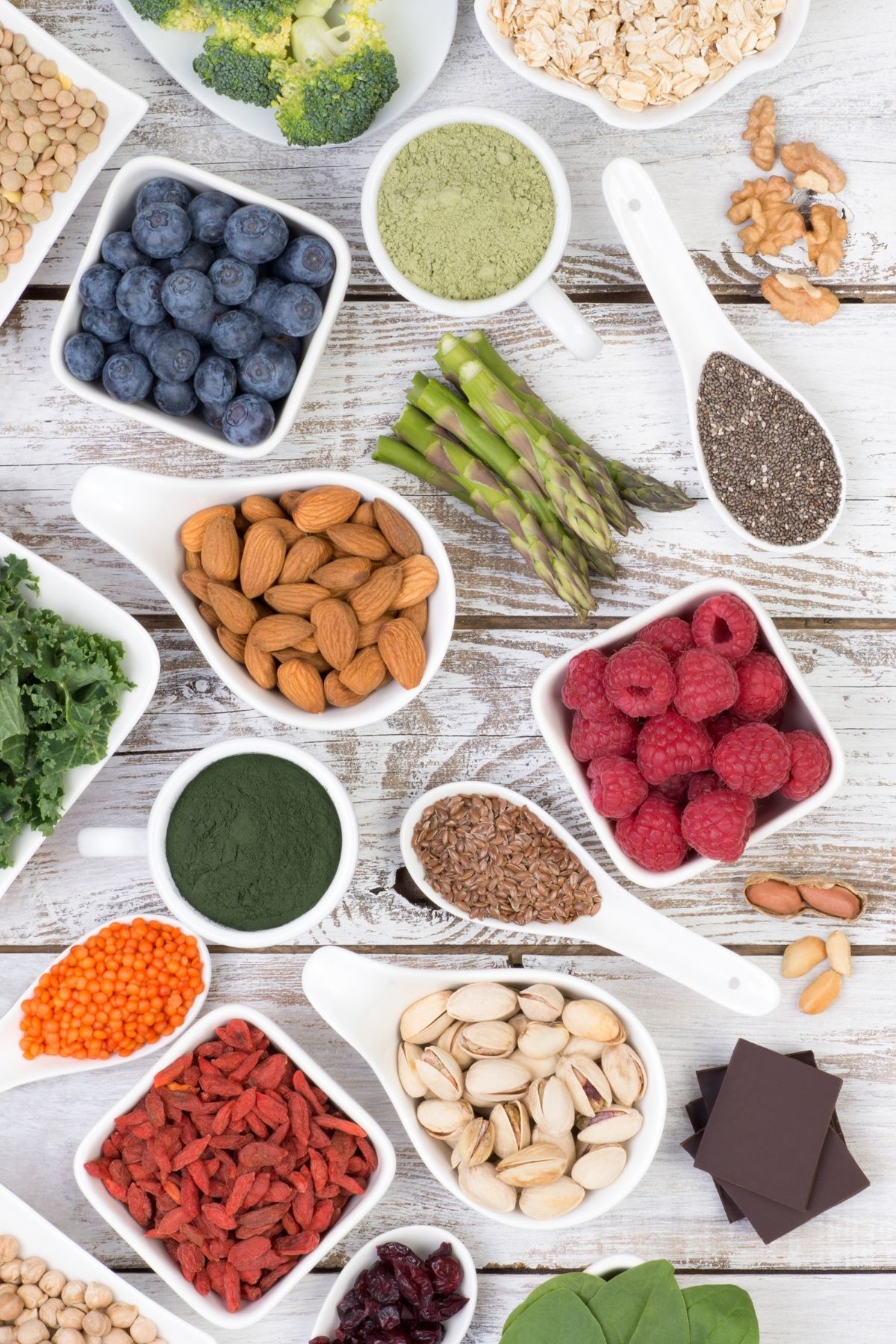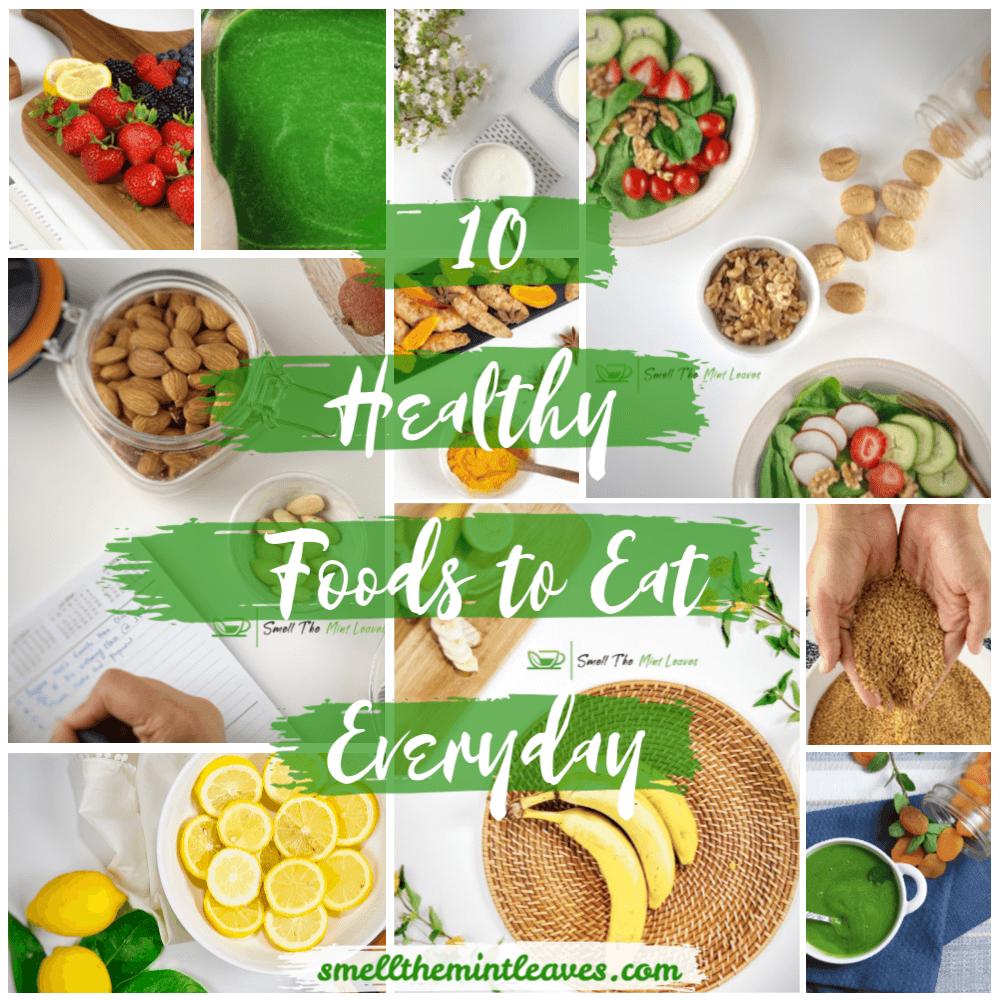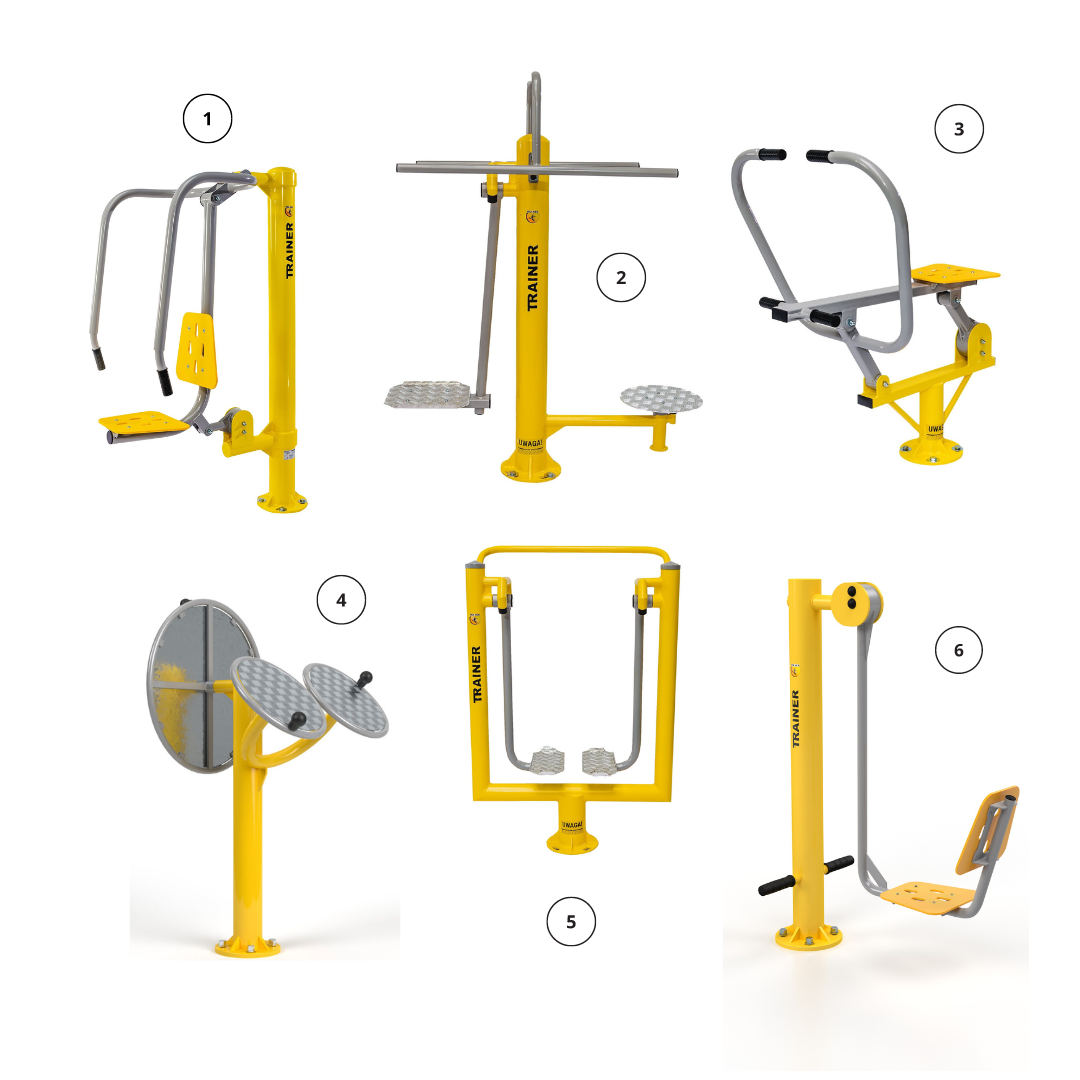What Healthy Food to Eat Daily? Eat a balanced diet daily, including vegetables, fruits, whole grains, lean proteins, and healthy fats. Stay hydrated with water.
A well-balanced diet is essential for maintaining optimal health. Consuming a variety of vegetables provides essential vitamins and minerals. Fresh fruits offer natural sugars and antioxidants. Whole grains supply fiber, aiding digestion and maintaining stable energy levels. Lean proteins, such as chicken, fish, and legumes, support muscle repair and growth.
Healthy fats from sources like avocados, nuts, and olive oil contribute to heart health and brain function. Drinking plenty of water helps keep the body hydrated and functioning efficiently. Making these nutrient-dense foods a regular part of your diet promotes overall well-being and can prevent chronic diseases.
Introduction To Daily Nutritious Eating
What Healthy Food to Eat Daily? Eating nutritious food every day is crucial for maintaining good health. It helps your body function well and keeps you energetic. Understanding what to eat can make your meals healthier and more enjoyable.
The Importance Of Choosing Healthy Foods
Choosing healthy foods can improve your overall well-being. Healthy foods provide essential vitamins and minerals. They also help in reducing the risk of chronic diseases.
- Fruits and vegetables are rich in vitamins and minerals.
- Whole grains provide necessary fiber for digestion.
- Lean proteins support muscle growth and repair.
Building A Balanced Diet
A balanced diet includes a variety of foods in the right proportions. It ensures that you get all the nutrients your body needs. Here’s a simple guide to building a balanced diet:
| Food Group | Daily Servings | Examples |
|---|---|---|
| Fruits | 2-4 servings | Apples, Bananas, Berries |
| Vegetables | 3-5 servings | Carrots, Spinach, Broccoli |
| Whole Grains | 6-8 servings | Brown Rice, Oats, Quinoa |
| Proteins | 2-3 servings | Chicken, Fish, Beans |
| Dairy | 2-3 servings | Milk, Yogurt, Cheese |
- Start your day with a healthy breakfast.
- Include various fruits and vegetables in your meals.
- Choose whole grains over refined grains.
- Include lean proteins in your diet.
- Opt for low-fat dairy products.
Making these small changes can greatly enhance your daily nutrition. Remember, eating well is a key part of feeling good every day.
Fruits: Nature’s Sweet Treats
Fruits are a delightful way to enjoy health benefits. They are packed with essential nutrients. They are also nature’s sweet treats.
Berries: Antioxidant Powerhouses
Berries are small, colorful, and packed with nutrients. They are rich in antioxidants. These help fight free radicals in the body.
- Blueberries: Known for their high antioxidant content.
- Strawberries: Excellent source of vitamin C and fiber.
- Raspberries: Low in calories and high in vitamins.
- Blackberries: Contains vitamins, minerals, and fiber.
Eating berries daily can boost your immune system. They also improve heart health. They are great for brain health too.
Citrus Fruits: Vitamin C Galore
Citrus fruits are famous for their high vitamin C content. They are juicy and refreshing.
| Fruit | Benefits |
|---|---|
| Oranges | Boosts immune system, promotes skin health. |
| Lemons | Aids in digestion, detoxifies the body. |
| Grapefruits | Helps with weight loss, controls blood sugar. |
| Limes | Improves digestion, supports heart health. |
Incorporating citrus fruits into your diet is easy. They are perfect in juices, salads, or as snacks. Enjoy the benefits of these vitamin C-rich fruits daily.
Vegetables: The Foundation Of Nutrition
What Healthy Food to Eat Daily? Vegetables are packed with essential nutrients. They boost your immune system and improve overall health. Adding a variety of vegetables to your daily diet is crucial. They provide vitamins, minerals, and antioxidants. Let’s explore some key types of vegetables that should be part of your daily meals.
Leafy Greens: Loaded With Vitamins
Leafy greens are nutritional powerhouses. They are rich in vitamins A, C, K, and folate. These vitamins support good vision, skin health, and immune function.
Common leafy greens include:
- Spinach
- Kale
- Swiss Chard
- Arugula
Leafy greens are also high in fiber. Fiber aids digestion and helps maintain a healthy weight. You can easily add them to salads, smoothies, and soups.
Cruciferous Vegetables: Cancer-fighting Heroes
Cruciferous vegetables are renowned for their cancer-fighting properties. They contain compounds called glucosinolates. These compounds help detoxify the body and protect against cancer.
Popular cruciferous vegetables include:
- Broccoli
- Cauliflower
- Brussels Sprouts
- Cabbage
These vegetables are also rich in vitamins C, E, and K. They support a strong immune system and healthy skin. Cruciferous vegetables can be roasted, steamed, or added to stir-fries.
Whole Grains: The Heart Of The Matter
Whole grains are essential for a balanced diet. They provide fiber, vitamins, and minerals. Eating whole grains daily can boost your health. They help in digestion and support heart health. Here are some top whole grains to include in your diet.
Quinoa: A Protein-rich Grain
Quinoa is a superfood. It is high in protein and contains all nine essential amino acids. This makes it a complete protein source. Quinoa is also rich in fiber, iron, and magnesium.
You can cook quinoa quickly. It takes about 15 minutes to prepare. Here are some ways to include quinoa in your meals:
- Add it to salads for extra protein.
- Use it as a base for bowls.
- Mix it with vegetables for a healthy side dish.
Oats: For A Heart-healthy Breakfast
Oats are a great way to start your day. They are rich in fiber and help lower cholesterol. Oats also keep you full longer, which helps in weight management.
Here are some easy ways to enjoy oats:
- Make overnight oats for a quick breakfast.
- Add fruits and nuts for extra flavor.
- Use oats in baking for healthy cookies.
Oats are versatile and can fit into any meal. They are easy to prepare and delicious.
Proteins: Building Blocks Of The Body
Proteins are essential for our bodies. They help build muscles, repair tissues, and produce enzymes. Eating enough protein daily ensures your body functions well. Let’s explore some healthy protein sources you can eat every day.
Legumes: Plant-based Protein
Legumes are an excellent source of plant-based protein. They include beans, lentils, chickpeas, and peas. These foods are rich in fiber and vitamins. Here are some common legumes and their protein content:
| Legume | Protein Content (per 100g) |
|---|---|
| Black Beans | 21g |
| Lentils | 9g |
| Chickpeas | 19g |
| Green Peas | 5g |
Including legumes in your diet helps you get enough protein. You can add them to salads, soups, or stews. They are versatile and easy to cook.
Fish: Omega-3 For Brain Health
Fish is a fantastic source of protein and omega-3 fatty acids. Omega-3 is vital for brain health. Eating fish regularly supports your brain and heart. Some popular fish and their benefits include:
- Salmon: High in omega-3, supports heart health.
- Tuna: Rich in protein, promotes muscle growth.
- Sardines: Loaded with calcium and vitamin D.
- Trout: Contains antioxidants and essential nutrients.
Incorporate fish into your meals at least twice a week. You can grill, bake, or steam fish for a healthy meal. Pair it with vegetables for a balanced diet.
Healthy Fats: Essential For Your Body
Healthy fats are crucial for your well-being. They help your body function properly. Healthy fats support brain health and hormone production. They also aid in nutrient absorption. Incorporate healthy fats into your daily diet for optimal health.
Avocados: More Than Just Healthy Fat
Avocados are packed with monounsaturated fats. These fats are heart-healthy. They can lower bad cholesterol levels. Avocados also contain vitamins and minerals.
| Nutrient | Amount per 100g |
|---|---|
| Monounsaturated Fat | 9.8g |
| Fiber | 6.7g |
| Vitamin K | 21µg |
| Folate | 81µg |
Enjoy avocados in salads, sandwiches, or as a spread. They add a creamy texture and rich flavor to meals.
Nuts And Seeds: Nutrient-dense Snacks
What Healthy Food to Eat Daily? Nuts and seeds are excellent sources of healthy fats. They offer a variety of nutrients. These include protein, fiber, and essential vitamins.
- Almonds: High in vitamin E and magnesium.
- Walnuts: Rich in omega-3 fatty acids.
- Chia Seeds: Packed with fiber and antioxidants.
- Pumpkin Seeds: Great source of zinc and iron.
These snacks are perfect for on-the-go. Sprinkle them on yogurt, oatmeal, or salads. They provide a satisfying crunch and boost of energy.
Dairy And Alternatives: Calcium And More
Maintaining a balanced diet is essential for good health. Consuming dairy and alternatives daily can help you meet your calcium needs. Calcium is crucial for strong bones and teeth. Let’s explore some excellent choices in this category.
Greek Yogurt: Probiotics And Protein
What Healthy Food to Eat Daily? Greek yogurt is a nutritious dairy option. It is rich in probiotics, which are good bacteria. These bacteria support your gut health. Greek yogurt is also high in protein. Protein helps in muscle repair and growth.
Here are some benefits of Greek yogurt:
- Improves digestion
- Boosts immune system
- Supports weight loss
Consider adding Greek yogurt to your daily diet. You can enjoy it with fruits, nuts, or honey. This makes for a delicious and healthy snack.
Almond Milk: A Dairy-free Option
Almond milk is a great alternative for those who avoid dairy. It is lactose-free and suitable for vegans. Almond milk is rich in vitamin E, which is good for your skin.
Here are some advantages of almond milk:
- Low in calories
- Contains healthy fats
- Supports heart health
Almond milk can be used in smoothies, cereals, and coffee. It is a versatile and healthy addition to your diet.
| Food Item | Main Nutrients | Health Benefits |
|---|---|---|
| Greek Yogurt | Probiotics, Protein | Improves digestion, boosts immunity |
| Almond Milk | Vitamin E, Healthy Fats | Low in calories, heart health |

Credit: www.health.harvard.edu
Hydration: The Essence Of Life
What Healthy Food to Eat Daily? Staying hydrated is essential for good health. Water is vital for every cell in our bodies. Proper hydration helps us stay energized and focused. It also aids digestion and keeps our skin healthy. Drinking enough fluids every day can make a big difference. Let’s explore the best choices for daily hydration.
Water: The Best Choice For Hydration
Water is the most natural and effective drink to keep us hydrated. It has no calories and is easily available. Drinking water helps maintain the balance of body fluids. It supports kidney function and helps flush out toxins.
Adults should aim to drink at least 8 glasses of water a day. Here’s a simple table to guide your daily water intake:
| Age Group | Daily Water Intake |
|---|---|
| Children (4-8 years) | 5 cups |
| Children (9-13 years) | 7-8 cups |
| Teens (14-18 years) | 8-11 cups |
| Adults | 8-12 cups |
Keep a water bottle with you throughout the day. This helps you remember to drink more water. Drinking water before meals can also help control appetite. Make sure to drink extra water during hot weather or when exercising.
Herbal Teas: Calming And Hydrating
Herbal teas are another excellent way to stay hydrated. They come in many flavors and offer various health benefits. Herbal teas can help relax the body and mind. They are also caffeine-free, making them a perfect choice before bed.
Here are some popular herbal teas and their benefits:
- Chamomile tea: Helps with sleep and reduces stress.
- Peppermint tea: Soothes digestion and refreshes.
- Ginger tea: Eases nausea and boosts immunity.
- Hibiscus tea: Rich in antioxidants and good for the heart.
Enjoying a warm cup of herbal tea can be a comforting daily ritual. You can also drink them iced for a refreshing treat. Herbal teas are a great addition to your hydration routine.
Incorporate these hydration tips into your daily routine for better health. Remember, staying hydrated is key to feeling your best!
Putting It All Together: Meal Planning
Meal planning makes healthy eating easier. It saves time and reduces stress. By planning your meals, you ensure a balanced diet. Let’s dive into creating a weekly meal plan and some healthy eating tips and tricks.
Creating A Weekly Meal Plan
Start by listing your favorite healthy foods. Include fruits, vegetables, lean proteins, and whole grains. Use a planner or a simple table like this:
Continue for the rest of the week
| Day | Breakfast | Lunch | Dinner |
|---|---|---|---|
| Monday | Oatmeal with berries | Grilled chicken salad | Quinoa with veggies |
| Tuesday | Smoothie with spinach | Turkey sandwich | Salmon with broccoli |
Healthy Eating Tips And Tricks
Here are some tips to make healthy eating simple:
- Prep your meals: Cut veggies and cook grains ahead of time.
- Stay hydrated: Drink water throughout the day.
- Portion control: Use smaller plates to avoid overeating.
- Snack wisely: Choose nuts, fruits, or yogurt.
- Eat a rainbow: Include different colored fruits and veggies.
Follow these tips and tricks to stay on track. Healthy eating can be fun and easy with a little planning.

Credit: www.cleaneatingkitchen.com
Frequently Asked Questions
What Is The Healthiest Food To Eat Daily?
The healthiest food to eat daily is leafy green vegetables. They are rich in vitamins, minerals, and antioxidants.
What Kind Of Food Should We Eat Everyday?
Eat a balanced diet daily. Include fruits, vegetables, whole grains, lean proteins, and healthy fats. Drink plenty of water. Avoid processed foods and sugary drinks.
What Are The 7 Foods You Should Eat Every Day?
The 7 foods to eat every day are leafy greens, berries, nuts, whole grains, yogurt, vegetables, and lean protein.
What Is A Healthy Daily Food Routine?
A healthy daily food routine includes balanced meals with fruits, vegetables, lean proteins, whole grains, and healthy fats. Drink plenty of water. Limit sugar and processed foods. Eat regular meals and snacks to maintain energy levels.
Conclusion
Embracing a daily diet of healthy foods can transform your life. Prioritize fruits, vegetables, lean proteins, and whole grains. These choices support overall well-being and provide essential nutrients. Remember, small changes in your diet can lead to big health benefits.
Start today and enjoy a healthier, happier life.




Leave a Reply